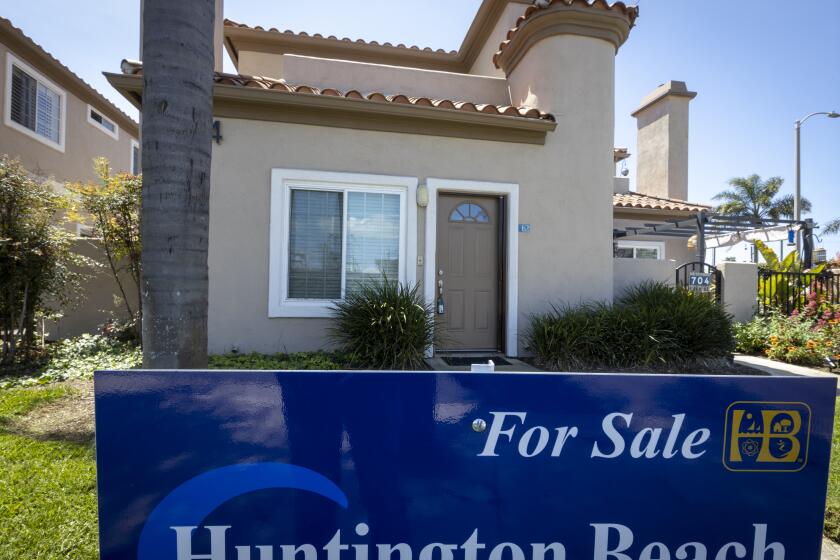Should you keep paying Medicare premiums if you’re moving abroad?

- Share via
Dear Liz: We are thinking of retiring to Paris. What would be the repercussions if we stop paying Medicare premiums? We’re concerned about the possibility of returning to the U.S. at some future date and the costs of reinstating it. Do we just pay back the past due payments plus a penalty?
Answer: You wouldn’t make up the missed payments, but you would owe a penalty that would permanently increase your premiums for Medicare Part B, which covers doctor’s visits, and Part D, which covers prescriptions. The penalty for Part B is 10% for every 12 months you were eligible but not enrolled. The penalty for Part D is determined by multiplying 1% of the “national base beneficiary premium” ($33.37 in 2022) by the number of months that you were eligible but didn’t enroll.
Many retirees who plan to eventually move back to the U.S. or make frequent visits opt to keep up their Medicare coverage. Consider discussing your options with a fee-only financial advisor — preferably one who has experience advising would-be expatriates. Another option when you have Medicare questions is to contact your State Health Insurance Assistance Program, which can provide free counseling.
Dear Liz: I am selling my house. After subtracting all selling costs, stepping up the basis for capital improvements over the years, and using the $500,000 capital gains exclusion from the IRS, I will still have a significant capital gains tax due. Does this tax need to be paid via the quarterly estimated tax in the quarter the house closes, or can I wait and pay the capital gains tax with the yearly tax filing?
Answer: If you are the sole owner of the home, then you can exclude up to $250,000 of capital gains from a home sale. If you’re married then the exclusion amount is doubled to $500,000.
Ours is a “pay as you go” tax system, which means you’re supposed to withhold the appropriate taxes as you earn or receive income. If you don’t withhold enough, you can owe penalties. People who don’t have regular paychecks or who experience windfalls, such as your home sale, may have to make quarterly estimated payments to ensure they’ve paid enough to avoid the penalties.
Rules on home sale gains changed in 1997. But there’s a chance that a previous sale could alter how much you can defer now if you sell. Here’s how.
One way to avoid penalties is to make sure your 2022 withholding at least equals your 2021 tax bill, if your adjusted gross income is $150,000 or less. If your adjusted gross income is more than $150,000, your withholding needs to equal 110% of your 2021 tax bill. Another is to pay 90% of your 2022 tax bill. It’s tough to know what your tax bill is going to be before the year ends, though, so most people choose to withhold based on their 2021 tax bill. If your 2022 bill will significantly exceed your withholding, however, you’ll want to make sure you stash the appropriate cash in a safe, FDIC-insured savings account so it’s available when you have to pay Uncle Sam next year.
Dear Liz: I understand your suggestion about waiting until you are 70 to apply for Social Security because you’ll get a larger amount. However, I applied at 62 and no matter how much more I would have received at 70, I would never recoup an amount equal to what I received. My husband chose to wait and died before he reached 70.
Answer: If your husband’s benefit was larger than your own, then his decision to delay was a real gift to you.
When one member of a couple dies, the survivor gets only the larger of the two Social Security benefits the couple used to receive. Losing one benefit can cause a sharp drop in the survivor’s income. That’s among the reasons why financial planners urge the higher earner to wait as long as possible: to maximize the benefit the survivor will have to live on for years or even decades.
If your husband had remained alive, then your early start could have been a mistake. Most people live past the “break even” point where the larger checks you could get from delaying more than outweighed the smaller checks you passed up in the meantime.
Liz Weston, Certified Financial Planner, is a personal finance columnist for NerdWallet. Questions may be sent to her at 3940 Laurel Canyon, No. 238, Studio City, CA 91604, or by using the “Contact” form at asklizweston.com.
More to Read
Inside the business of entertainment
The Wide Shot brings you news, analysis and insights on everything from streaming wars to production — and what it all means for the future.
You may occasionally receive promotional content from the Los Angeles Times.











